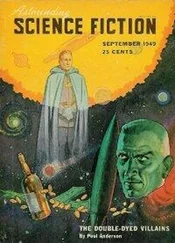Kingsley Amis - Russian Hide-and-Seek
Здесь есть возможность читать онлайн «Kingsley Amis - Russian Hide-and-Seek» весь текст электронной книги совершенно бесплатно (целиком полную версию без сокращений). В некоторых случаях можно слушать аудио, скачать через торрент в формате fb2 и присутствует краткое содержание. Жанр: Современная проза, на английском языке. Описание произведения, (предисловие) а так же отзывы посетителей доступны на портале библиотеки ЛибКат.
- Название:Russian Hide-and-Seek
- Автор:
- Жанр:
- Год:неизвестен
- ISBN:нет данных
- Рейтинг книги:3 / 5. Голосов: 1
-
Избранное:Добавить в избранное
- Отзывы:
-
Ваша оценка:
- 60
- 1
- 2
- 3
- 4
- 5
Russian Hide-and-Seek: краткое содержание, описание и аннотация
Предлагаем к чтению аннотацию, описание, краткое содержание или предисловие (зависит от того, что написал сам автор книги «Russian Hide-and-Seek»). Если вы не нашли необходимую информацию о книге — напишите в комментариях, мы постараемся отыскать её.
A handsome and highly sexed young Russian cavalry officer, Alexander Petrovsky, joins the plot and learns to his regret that politics and playmates don't mix.
"Funny, cynical, captivating-Amis makes an implausible situation almost believable, then lets his characters worry their way out." (B-O-T Editorial Review Board)
Russian Hide-and-Seek — читать онлайн бесплатно полную книгу (весь текст) целиком
Ниже представлен текст книги, разбитый по страницам. Система сохранения места последней прочитанной страницы, позволяет с удобством читать онлайн бесплатно книгу «Russian Hide-and-Seek», без необходимости каждый раз заново искать на чём Вы остановились. Поставьте закладку, и сможете в любой момент перейти на страницу, на которой закончили чтение.
Интервал:
Закладка:
‘Yes, sir,’ said Alexander. ‘You mentioned the four of us as having taken part in this affray.’
‘Well?’
‘Well… my revolver hasn’t been fired, sir. The investigators-’
‘Fire it. Anything else? So. Even stupid troops conduct themselves better when told something of the reasons for their orders. The amended version of these improper events, then, is likely to bring you less displeasure from authority than the tale I heard earlier, but be advised that that in itself interests me not at all. If my officers were seen to be at such a low level of training, morale and esprit de corps as to risk their lives habitually in a fatuous prank, or to think that a thing like that is too ordinary to be worth mentioning,’ – here Major Yakir stared grimly at Alexander – ‘I should rightly be charged with unfitness to be their leader. This I naturally mean to avoid. Good night, gentlemen. I hope by all the saints I never have to command you in war.’
15
‘Repent ye, for the Kingdom of Heaven is at hand! St Matthew, chapter three, verse two.
‘I will arise, and go to my father, and will say unto him, Father, I have sinned against Heaven, and before thee, and am no longer worthy to be called thy son; St Luke, chapter fifteen, verses eighteen and nineteen.
‘Enter not into judgement with thy servant, 0 Lord; for in thy sight shall no man living be justified; Psalm 143, the second verse.
These words had not been heard for considerably more than the fifty years since the Pacification, neither where they had just been spoken nor in most other places of significance. It was of course unknown to Commissioner Mets or to any of his advisers that about the middle of the previous century various amended forms of prayer, supposedly more accessible to the congregation of the day and certainly disencumbered by hard words like ‘ye’ and ‘unto’ and ‘thee’, had begun to be used in English churches. The choice between one or other of these and the 1662 text had therefore fallen to the Rev. Simon Glover. He had scarcely hesitated. His best-loved uncle, an archdeacon of honoured memory, had never countenanced the smallest deviation from the old style, on the argument that any slight gain in literal intelligibility would be much more than offset by a loss in the power to win and enhance faith or even (as it must often be) merely to engage attention. Such an argument had gained force over the years. Glover knew too that he could bring to the wording he had learned in childhood a naturalness and warmth impossible to attach to the brisk, cheeky assertions and admonitions of the modern paraphrases. And, not very clearly, he felt he was offering the Commissioner a kind of defiance in spirit by going against what he would undoubtedly have preferred if he had known it was there to prefer.
The church showed no trace of the confusion Alexander had found when he strayed into it those weeks previously. The pews were up, the choir-stalls were up, the pulpit was up – not only up, but with the appearance of haying been up for an indefinite time. The renovators’ orders had been to produce something as indistinguishable as could be from the interior to be seen in the photograph given them as their guide, and they had accordingly attacked the pine boards with chisels, drills, hammers, adzes, had stained them, rubbed ash and tea-dregs into them, stained them again; relays of men in cleated boots had run up and down the pulpit stairs. Above, missing or damaged panes of the Victorian stained glass had been replaced by window glass (of indifferent quality) overlaid with semi-transparent emulsions. Great care had been taken, on the whole rather successfully, to duplicate the tints and shades of the surviving parts, but if those craftsmen of old could have seen the reconstructions of the non-surviving parts, all supposedly conceived in a spirit of scrupulous adherence to the pictorial and devotional values of their period, they might have been very much surprised. The organ, on the other hand, having been left more or less undamaged except by rot and rust, closely approximated to its former self, in appearance at least, though erratic wiring behind the pistons had produced some sudden loud noises when soft ones had been expected and vice versa, together with unintended moments of complete silence, in the opening voluntary. Still, it led the choir safely enough into the first hymn.
‘He who would valiant be
‘Gainst all disaster,
Let him in constancy
Follow the Master.’
The choir, trained by Russian masters, stiffened with Russian singers, performed well, keeping the voices balanced, giving full value to every note, holding the tempo at the end of each verse. Scattered among the congregation some old voices began to join in, most of them with the air, one at least with the bass part, powerfully and accurately rendered. Bit by bit others picked up the melody. To Joseph Wright, standing near the back with Kitty at his side, it seemed something he had always known, a part of his childhood, even though he could never have heard it in public after the age of three. The tune he understood, felt thoroughly at home with; the words were a different matter, set out in full as they were on the replicated sheet before him.
‘Who so [sic] beset him round
With dismal stories?
But they themselves confound…
Why was it thought interesting that the kind of man who would be brave however disastrous the situation became would also be proof against mere discouragement and dismal stories? And why was the question of the identity of the dismal-story-tellers raised only to be instantly dropped? And the line about the people cursing (confounding) themselves was… but the main drift was clear. Brave men were being encouraged to make a pilgrimage, to travel to some spot where a saint was said to have been executed or a miracle performed, the pilgrimage being under the direction of a priest or parson known as the Master. Such pilgrims were evidently subjected to verbal abuse and disheartening accounts of conditions on the journey. Well…
‘ Then fancies flee away!
I’ll fear not what men say,
I’ll labour night and day
To be a pilgrim.’
Of course! The pilgrimage was frowned on by the authorities, perhaps actually forbidden, but the doughty Christian would make good his right to go on it just the same, undeterred by the fear that reports of this might reach their ears. So the poem was not so much about a literal pilgrim as about the duty of following one’s convictions, which, Wright supposed, made it a religious poem even though it nowhere referred to God. Admirable as its theme certainly was, if it was at all typical of what his parents’ generation had sung in church some of the early Russian measures had at any rate not been reasonless.
What had others in the congregation made of the hymn? They had clearly enjoyed the singing as such, producing, along with the choir in unison, a quite impressive body of sound in the last verse. Their expressions as they settled back in their seats were comfortable, pleased, expectant of further sober enjoyment. He could see no hint of triumph at a freedom restored or a gesture of defiance, however small, however permissible, offered the oppressor. Jim Hough, Frank Simpson and their families, the rest of them and their families, looked to Wright very much as their forbears might have looked when at evensong, in one sense peculiarly so, for the dark suits the men wore, the bowler hats and gloves they carried, the women’s long dresses and wide-brimmed hats, had been carefully copied from another photograph, one taken almost a century before, in 1937, of a crowd of people leaving this church after a service. The clothes had been mass-produced by local labour from cheap sub-materials and in some cases were already starting to come apart.
Читать дальшеИнтервал:
Закладка:
Похожие книги на «Russian Hide-and-Seek»
Представляем Вашему вниманию похожие книги на «Russian Hide-and-Seek» списком для выбора. Мы отобрали схожую по названию и смыслу литературу в надежде предоставить читателям больше вариантов отыскать новые, интересные, ещё непрочитанные произведения.
Обсуждение, отзывы о книге «Russian Hide-and-Seek» и просто собственные мнения читателей. Оставьте ваши комментарии, напишите, что Вы думаете о произведении, его смысле или главных героях. Укажите что конкретно понравилось, а что нет, и почему Вы так считаете.












